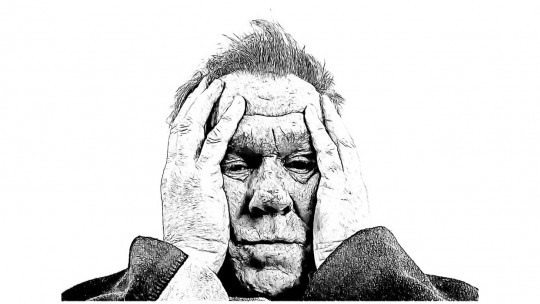What is occupational therapy? How do occupational therapists work? Discover 7 benefits of occupational therapy and how professionals help you push your limits.

The therapeutic use of occupation has become a health discipline that allows treating psychological disorders through a series of instruments that enable the patient’s activity and improve their quality of life. The development of occupational therapy is linked to rehabilitation processes and its use enables the training of those people with physical, psychological or neurological limitations. In this way, the occupational therapy work It is essential to have a full life despite the problems that may exist in both mental and physical health.
What is occupational therapy?
The occupational therapy It is a discipline that seeks to promote the health and well-being of people through activity and occupation. The professionals who develop this therapy understand occupation to be the set of daily activities that give people meaning and meaning, activities that are related to their participation in society. In this way, this definition of occupational therapy would fit quite well with some of the functions of a psychologist, although these two professions cooperate to provide more benefits for people with problems that limit them in their lives.
Within the occupational therapists Training plays an important role. The functions of the occupational therapist are to articulate the necessary mechanisms so that patients who have some type of limitation or condition can acquire skills that make them capable of carrying out their daily activities. Therefore, the job of an occupational therapist is to try to provide people with autonomy and independence.
Who is occupational therapy for?
As we have indicated, the occupational therapist functions is to improve the quality of life of those people whose conditions limit the normal development of daily activities. In this sense, it is usually a treatment closely associated with the elderly, but not exclusive to them. In fact, occupational therapists work with people of very varied profiles, among which we highlight the following:
- People with intellectual disabilities
- Drug addicts
- Patients with neurodegenerative conditions (Parkinson’s, Alzheimer’s…)
- Patients with cerebral palsy
- Children who require therapies to promote early stimulation
- Patients undergoing surgery for trauma ailments
- People who have to carry out physical or psychological rehabilitation treatments
- Old people
- Children who need a therapist to develop their sensory, intellectual and physical abilities
This broad compendium of profiles makes the occupational therapist a professional who carries out his work on several fronts: from nursing homes to schools, including hospitals, penitentiary centers and reformatories, etc. Therefore, the occupational therapy work It is highly valued today. Despite this, on many occasions, an occupational therapist must work closely with a psychologist.

Benefits of occupational therapy
Through the occupational therapy Patients who have physical limitations acquire greater independence so that they can cope with their daily lives. With older people, therapists promote activities aimed at their body care, but also at their stimulation in order to delay or slow down the progression of certain degenerative diseases. For their part, therapists who work with children manage to stimulate their learning while trying to provide them with greater autonomy so that they are able to adapt to their physical and social reality. Mainly, the benefits of occupational therapy work are the following:
1. Overcome everyday challenges
To overcome the challenges of any disease, the occupational therapy process It makes patients have at their disposal different techniques that facilitate day-to-day tasks. In this way, therapists offer methods such as sensory stimulation so that occupational therapy can promote the autonomy process of people who need it. So much so that they can help children, adolescents and adults to overcome their physical or mental limitations.
2. They offer a greater range of motion
Both the physiotherapy and occupational therapy They prescribe a wide variety of movement exercises that seek to increase the range of movement in both children and people with physical limitations. Therefore, the use of an occupational therapist in these cases consists of working to improve the limits of movement that some people may have.
3. They improve independence
Whether people with psychological disorders, diseases that limit mobility or the elderly, require independence to be able to enjoy their lives. In these cases the occupational therapy work It is trying to visualize what can be improved (both on a personal and material level) to facilitate greater independence in people who suffer from these limitations. In this way, not only the quality of life of the patients is improved but also the self-esteem and self-acceptance of their defects and virtues are increased.

4. Promotes better memory
Most of the limiting problems that cause mental illness are related to memory. Therefore, one of the occupational therapist functions It is mainly to try to promote activities both to improve this skill that is so necessary for our daily lives and to delay dementia in certain cases.
5. Helps cope with chronic pain
Chronic pain is one of the problems that most affects people with mental or physical illness. He job of an occupational therapist It also involves helping your patients develop various adaptive alternatives to perform daily activities in order to compensate for chronic pain.
6. They improve communication
In the occupational therapy, The lesser-known work is precisely related to improving the patient’s communication and social skills. In this way, the person suffering from these diseases is helped to integrate with others and promote greater socialization.
7. Understanding the disease
One of the functions of an occupational therapist It is to help understand what the disease that the person suffers consists of and how one can work to improve the conditions that limit the patient. Through this, occupational therapy helps people accept themselves and improve the perspective of their illness since they have goals to improve. In those cases in which we work with drug addicts, the occupational therapy It aims to raise awareness among patients about the complexity of their addiction and the problems they face in overcoming it.
In many cases, a occupational therapist will require the help of a professional psychologist since these two specialists are required to work together to improve the autonomy and independence of patients with certain mental and physical illnesses.
For all this, the occupational therapy It is a discipline in which motivation, continued work and the relationship forged between the therapist and the patient play a very prominent role.








